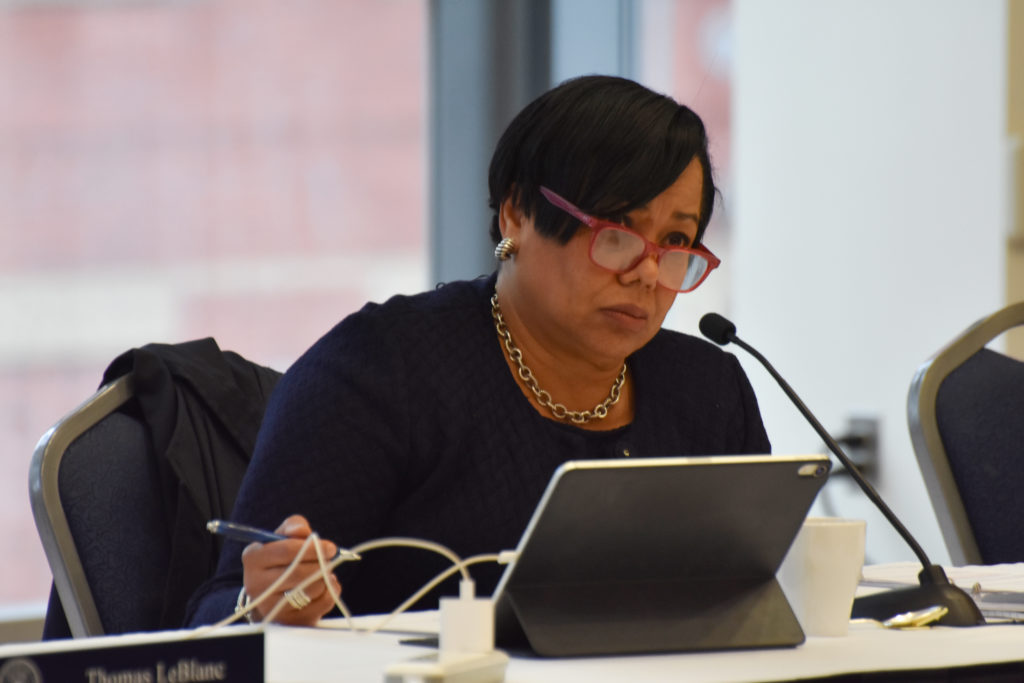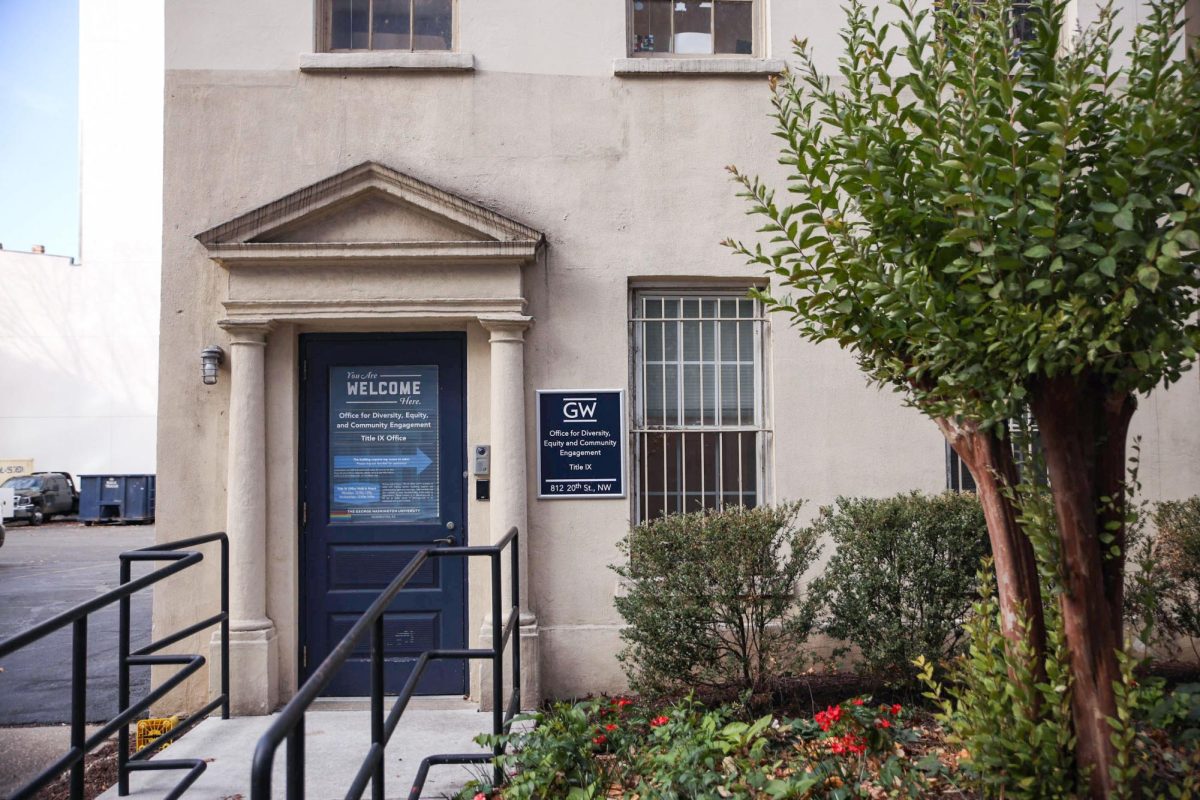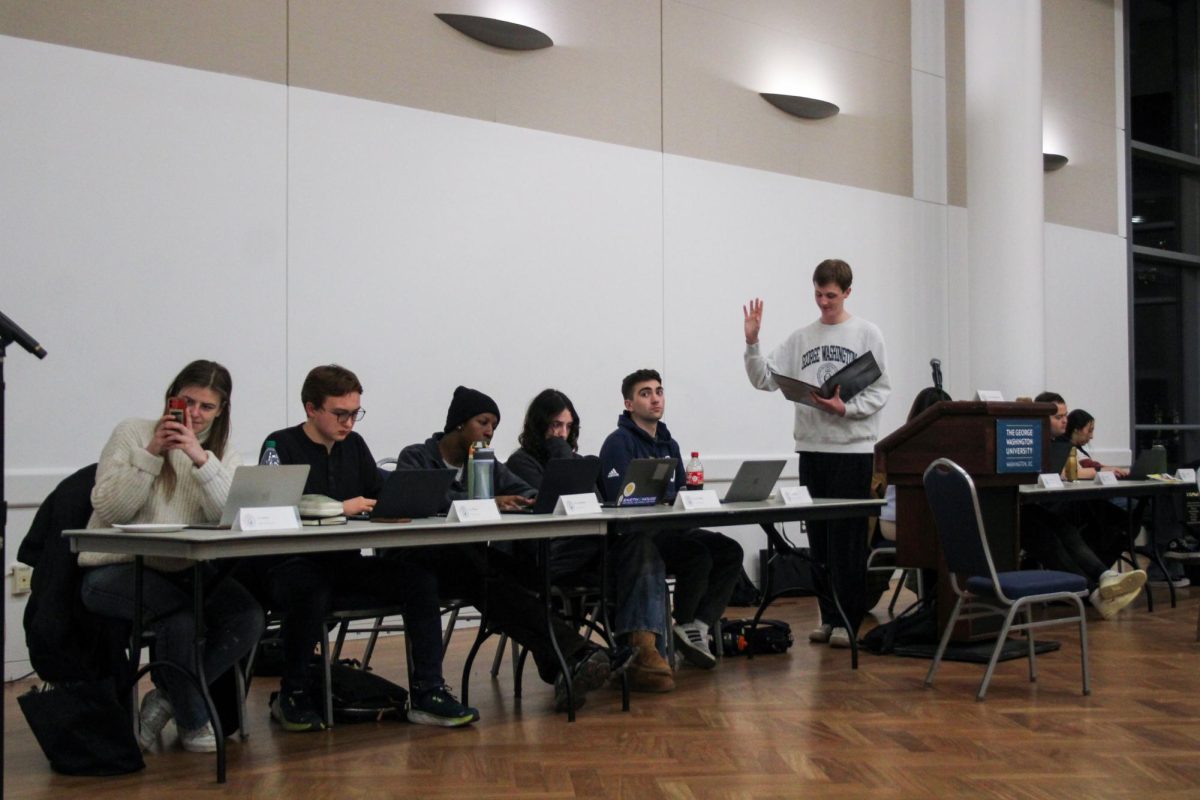Board of Trustees Chair Grace Speights defended University President Thomas LeBlanc at a Board meeting Friday, sparring with the Student Association president over his executive order calling for LeBlanc’s resignation.
SA President Howard Brookins’ order called on the University community to suspend donations to GW until LeBlanc is replaced, and the SA Senate subsequently passed two resolutions Wednesday supporting LeBlanc’s resignation while abrogating Brookins’ demand to halt donations to all GW funds. Speights lauded LeBlanc’s leadership throughout the meeting, marking her first public statement addressing hundreds of faculty, staff and students’ demands for new leadership.
“As someone charged with leading a group dedicated to promoting the general welfare of students, encouraging a no-donate pledge is just incomprehensible to me and is just not something I would expect a leader in your position to do,” Speights told Brookins during the meeting. “Donations are the lifeblood of GW and provide tremendous benefits to the students you serve.”
Speights said LeBlanc has demonstrated “strong” leadership and praised his decisions to allow those unable to return home to continue living on campus, avoid a University-wide salary cut and move the fall semester online.
“Leading a dynamic, diverse University community with many differing and strong opinions is challenging in the best of times, and these have been among the most difficult, challenging times we have ever faced,” she said. “The Board of Trustees appreciates and supports the outstanding work you and your leadership team have done to navigate circumstances unlike any we have ever experienced before.”
Speights added that Brookins’ executive order, which cited GW’s low alumni giving rate compared to its peer institutions, left out key philanthropic accomplishments, like high total fundraising levels since LeBlanc’s arrival at GW. Donors have committed more than $57 million toward student aid during LeBlanc’s first three years at the University, she said.
“I’m most disappointed because both the executive order and the resolution contain a number of inaccurate and misleading statements,” Speights said.
Speights said recent SA actions have caused “divisiveness” at GW, and she encouraged student collaboration with LeBlanc.
Brookins said in an interview that LeBlanc and administrators have already created division and a “fractured relationship” with members of the University community.
“It has been documented in different speeches that I have given, in different clashes with the administration,” he said. “I would like to point out that the Student Association is trying to unite the GW community because most students agree on this issue. Students do not feel that President LeBlanc is the best fit for this University.”
At the senate meeting Wednesday, senators asked Brookins to sign a new executive order specifying that members of the GW community should cease donations to the President’s Fund for Excellence, a discretionary fund overseen by LeBlanc, rather than call for a blanket no-donate pledge.
After speaking with SA senators, Brookins said the pledge has been updated to only discourage donations to the GW general fund to avoid the effort affecting financial aid levels.
He said the concerns about LeBlanc from members of the GW community must be prioritized over donations.
“Students, staff, faculty and alumni are the lifeblood of this University,” Brookins said. “I value the opinions of the true stakeholders of the University much higher than any donation because the reputation of the University stems from the people within and the experience that they have.”
The senate resolution asks officials to include student, faculty and staff representatives on the search committee for a new University president. Some faculty raised concerns about representation on the search committee during LeBlanc’s hiring process.
SA Sen. Gabriel Young, CCAS-U and a sponsor of the senate’s resolution calling for LeBlanc’s resignation, declined to comment. SA Executive Vice President Brandon Hill did not return a request for comment.
At the Board meeting, LeBlanc acknowledged rising tensions with some members of the University community, adding that he will continue to look for areas of agreement and engage students, faculty, staff and alumni.
“I know for some in our community, there have been strong disagreements with the actions that we have taken and with me personally,” LeBlanc said at the meeting. “Being on a college campus with diverse opinions, that’s not surprising. What I can tell you is that since I came here three years ago, I have focused my energy every day listening to everyone in our community and striving to do what is best for this University.”











